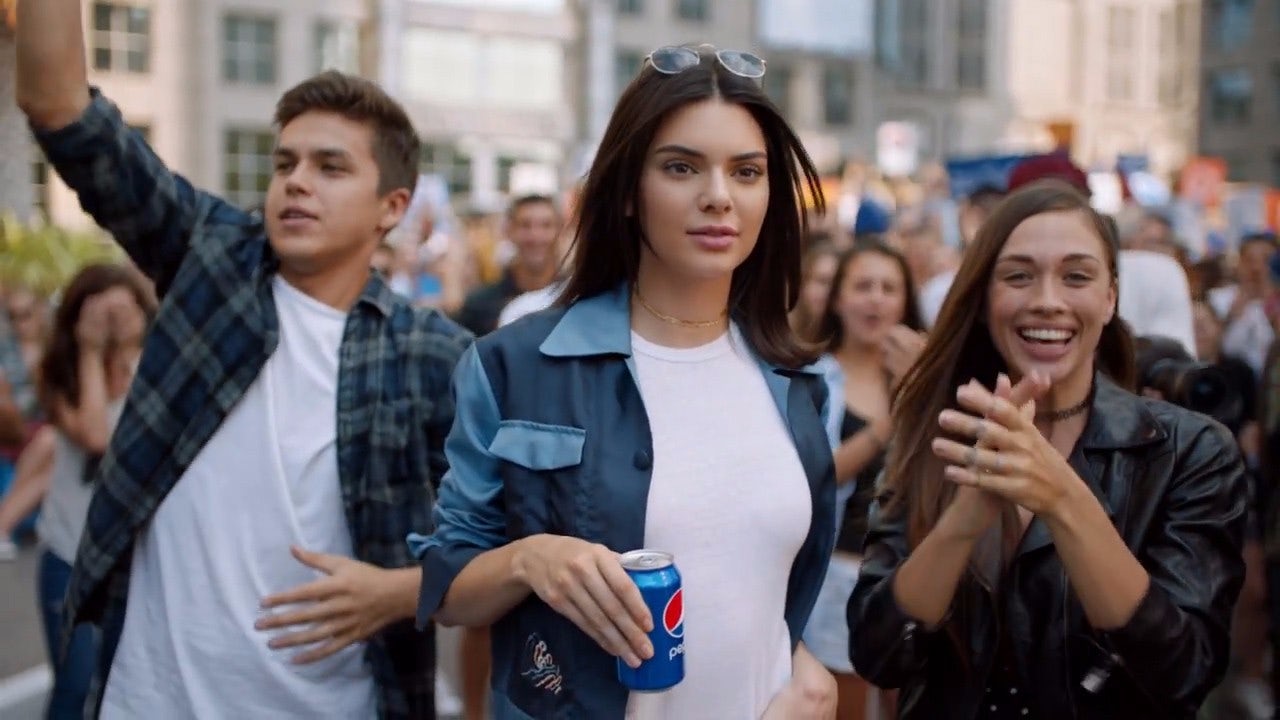It took roughly 24 hours for Pepsi to retract an ill-conceived ad in which model and reality show star Kendall Jenner defuses tension between protesters and riot cops by offering one of them a can of soda. But when the backlash first started — that is to say, immediately after the ad hit the internet — the brand dug in its heels, defending the piece as a “global ad” that was not just aimed at North America, where the company makes 56 percent of its profits, but the rest of the world, too, where the bulk of its revenue is expected to shift as Americans cut back on soda. “This is a global ad that reflects people from different walks of life coming together in a spirit of harmony, and we think that’s an important message to convey,” the company said in a statement. (Pepsi did not respond to questions about where the ad was distributed, but it was posted to multiple YouTube accounts including Pepsi Global and press releases were issued in multiple languages before being removed.)
In the U.S., the ad fell flat on its face. The 30-second commercial and its longer cut came off as a cynical appropriation of recent social justice action, including the Black Lives Matter movement, the spontaneous marches that happened immediately after the presidential election, the Women's March in January, and the airport protests after Trump signed a travel ban targeting Muslim countries. But how did the ad play in the rest of the world, where collective action is often met with state violence?
In Thailand, where the ad was shot, protest is frequent but dangerous, as criticism of the royal family is a crime. Protests there, like many other parts of the world, don’t end peacefully: in 2010, 86 people were killed (including six police) in political protests. In 2013 and 2014, at least 28 were killed in a series of anti-government protests that eventually led to a military coup.
That recent history did not seem to inspire the same type of outrage to the ad that played out in the U.S. Vogue Thailand ran a profile of Jenner and the ad before the controversy broke. Local social media posts were more positive, suggesting that Thai Instagrammers enjoyed seeing their capital appear in the ad even with a ludicrous premise. “People are still excited about how THE Kendall Jenner set foot in Bangkok,” wrote the local news blog Coconuts, which was more skeptical about the light use of Thai scenery in the video than what it was trying to say. “We wonder what message Pepsi is trying to send by choosing Bangkok as the set without featuring any of its glory?”
Zeynep Tufekci, an assistant professor at the University of North Carolina who was born in Turkey and has participated in many protests at home and internationally as part of her research, said she saw a contemptuous reaction to the ad in other countries. “I know it caused a backlash in the United States but it was also seen with disdain in places like Turkey and even Egypt where millions have turned out in protest, but for real reasons, not to drink sugar water or to show off,” she said.
One reason for the lack of interest abroad may be that Pepsi is not breaking new ground here. There is a rich history of brands attempting to capitalize on the energy around collective action around the world. Previous ads co-opting social movements in the Middle East have been mocked just as mercilessly, with brands in Egypt accused of trying to "claim responsibility for the revolution there." One of the ads in question was a Vodafone campaign called “Our Power,” where the telecommunications company took credit for inspiring the Tahrir Square protests and revolution.
However, it seems more likely that the “protest” depicted in the ad was so fantastically utopian that it was too unrecognizable to spark outrage. While American protesters experience police brutality, arrest, and surveillance, protest is a constitutional right and rarely a matter of life and death. In the U.S., protest is broadly seen as a good and safe activity; at the Women’s March in January, protesters were seen high-fiving police officers. But taking to the streets in places like Egypt or Thailand is a radical risk, one that can be fatal — more than 800 people died during the Egyptian revolution in 2011. While self-serious outrage poured out on U.S. social media in reaction to the ad, the rest of the world seemed to shrug as they cracked open another Pepsi.
There is some evidence that Pepsi had more global promotion planned around the ad, the short version of which was called “Live For Now Moments Anthem” and the longer version, “Jump In.” A press release said it would be “seen globally across TV and digital” and “Moments iconography will be across packaging, out of home and in-store for the full Pepsi trademark of blue, black and silver offerings.” Exactly what that means — did Pepsi just destroy a crop of Kendall cans? Did it have cardboard Kendalls on their way to malls around the world? — is unclear. Pepsi has not responded to questions. It seems to be having its own moment of silence.
